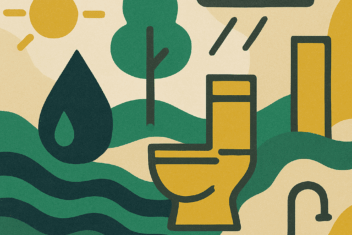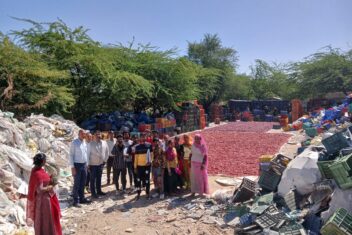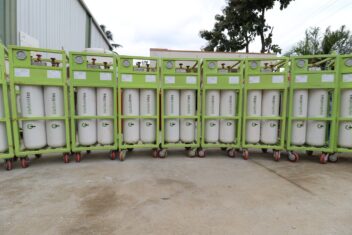Working with faith-based organisations for a holistic approach to urban development
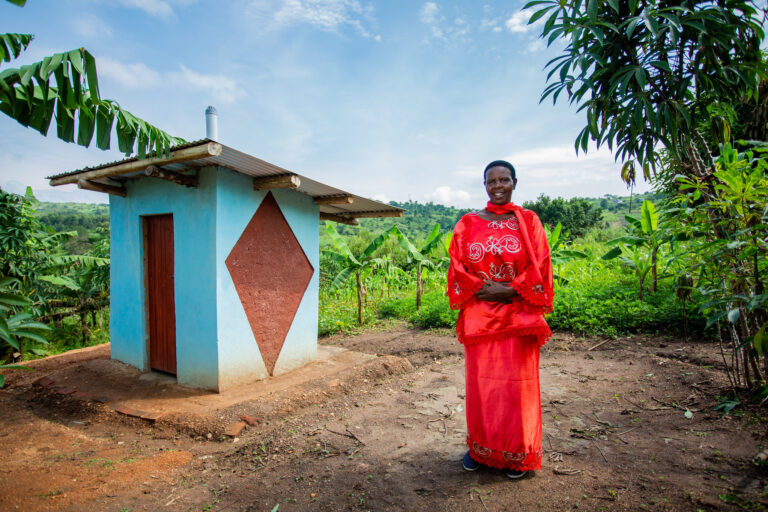
Image above: Mary Kebirungi a Village Health Team member standing next to her safely managed toilet in Rukoko Village, Kamwenge District. As a Village Health Team member, Mary is supported by our partners under our FINISH Mondial programme like Caritas Fort Portal-HEWASA and Amref Health Africa to help mobilize the community to build permanent safely managed sanitation facilities.
Faith-based organisations and religious institutions are the foundation of many societies
Religion plays a huge role in many societies around the world, particularly in Uganda. In total, more than 80% of Uganda’s total population affiliates closely with religion. Religion has a deep connection to a society’s identity, values, and can inform how society and the public sphere are organised. It is important, therefore, that the development sector learns how to work with and alongside faith-based organisations to achieve sustainability.
Religious institutions directly participate in many social activities and influence the lives of many at all levels of society. For instance, besides having many adherents, the Catholic Church in Uganda provides educational and health services. Therefore, working with faith-based and religious institutions in Uganda is an excellent way for NGOs to access, work with local people and sustain impact long after projects have completed.
Partnerships that teach us the most
2011 marked the first year WASTE worked with Caritas Fort Portal – HEWASA. At that time, Caritas Fort Portal – HEWASA focused on sanitation and looking at public places like commercial buildings and markets, along with introducing financing for WASH. They started with WASTE’s Diamond approach by training the local stakeholders. Then, they presented it to financial institutions such as HOFOKAM, an institution formed by the Catholic Church with three dioceses, creating a microfinance body. WASTE helped Caritas Fort Portal – HEWASA in capacity building of the staff in the financing, product development, business identification across the value chain in sanitation, marketing skills, business skills, and how to market the product in terms of sanitation technology options, and how to approach the clients. WASTE first partnered with Caritas Fort Portal-HEWASA in Uganda, under the WASH SDG programme, recognising the importance of working with trusted faith-based organisations and religious institutions. Within the implementing partnership (WASH Alliance International), WASTE focuses on developing sustainable financing, setting up local markets, and facilitating the enabling environment for the private sector to thrive. Today, we still working together under our FINISH (Financial Inclusion Improves Sanitation & Health) Mondial Uganda programme.
For Pamela Kabasinguzi – Executive Programme Manager of Caritas Fort Portal-HEWASA, and Country Coordinator of our FINISH Mondial Uganda programme, the partnership with WASTE has ventured them into an area of meeting development work with financial inclusion—an area where no one dared to touch and there was a high risk. Pamela told us on the work before financial inclusion, “How can you expect an average household to afford a high quality, safely managed sanitation system, given the relatively low incomes?”
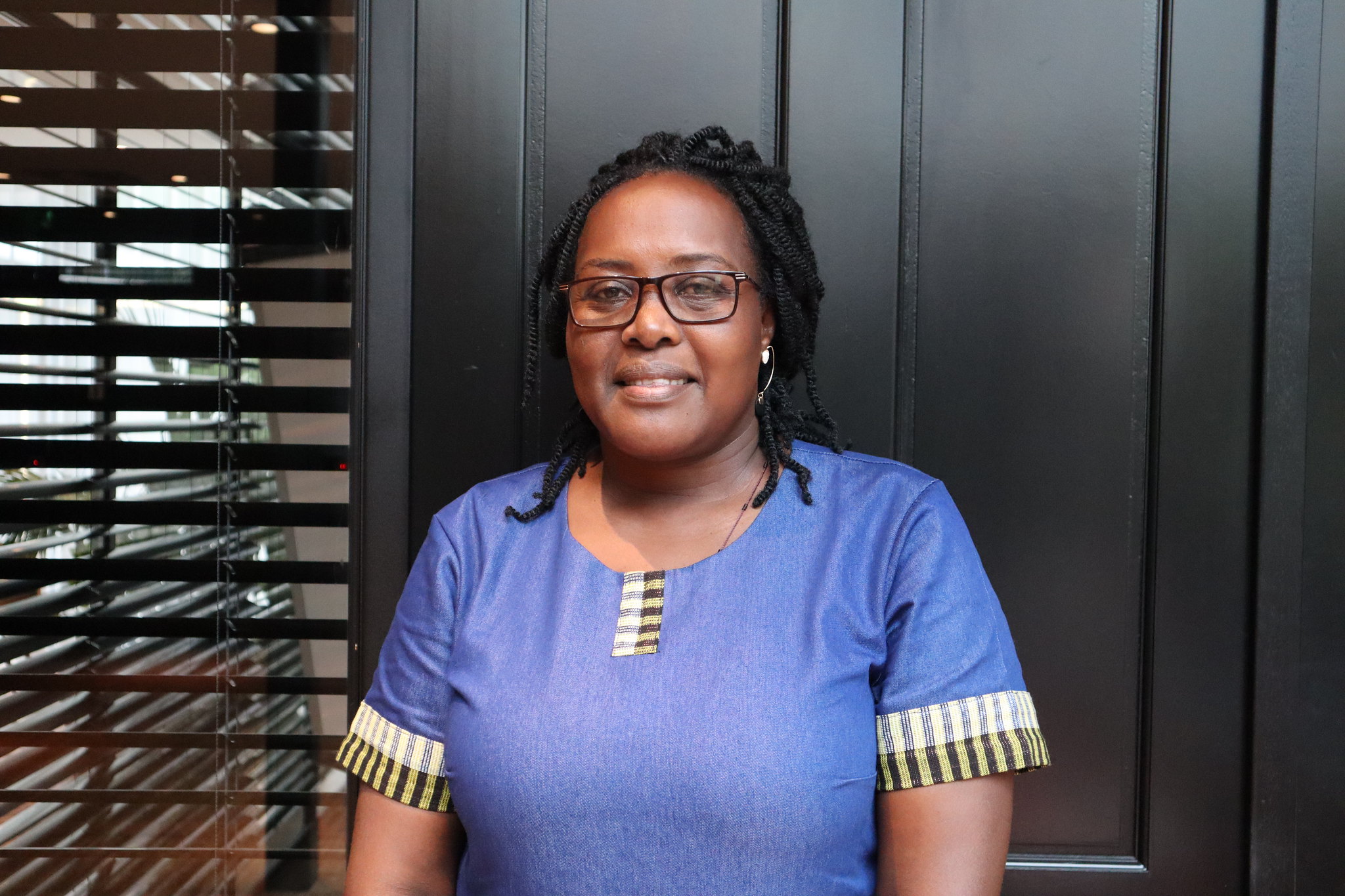
The financing problem has been tackled by implementing WASTE’s Diamond Model—a multi-stakeholder approach for sustainable development particularly focused on bringing in local financing for development. Caritas Fort Portal-HEWASA focuses on high demand creation and emphasizes the financing part of the Diamond from the angle of the business, financial literacy, and market creation, to ensure no one is left behind. Households are now clients who can buy a product, such as a toilet, and make their own decisions on how development is done in their area.
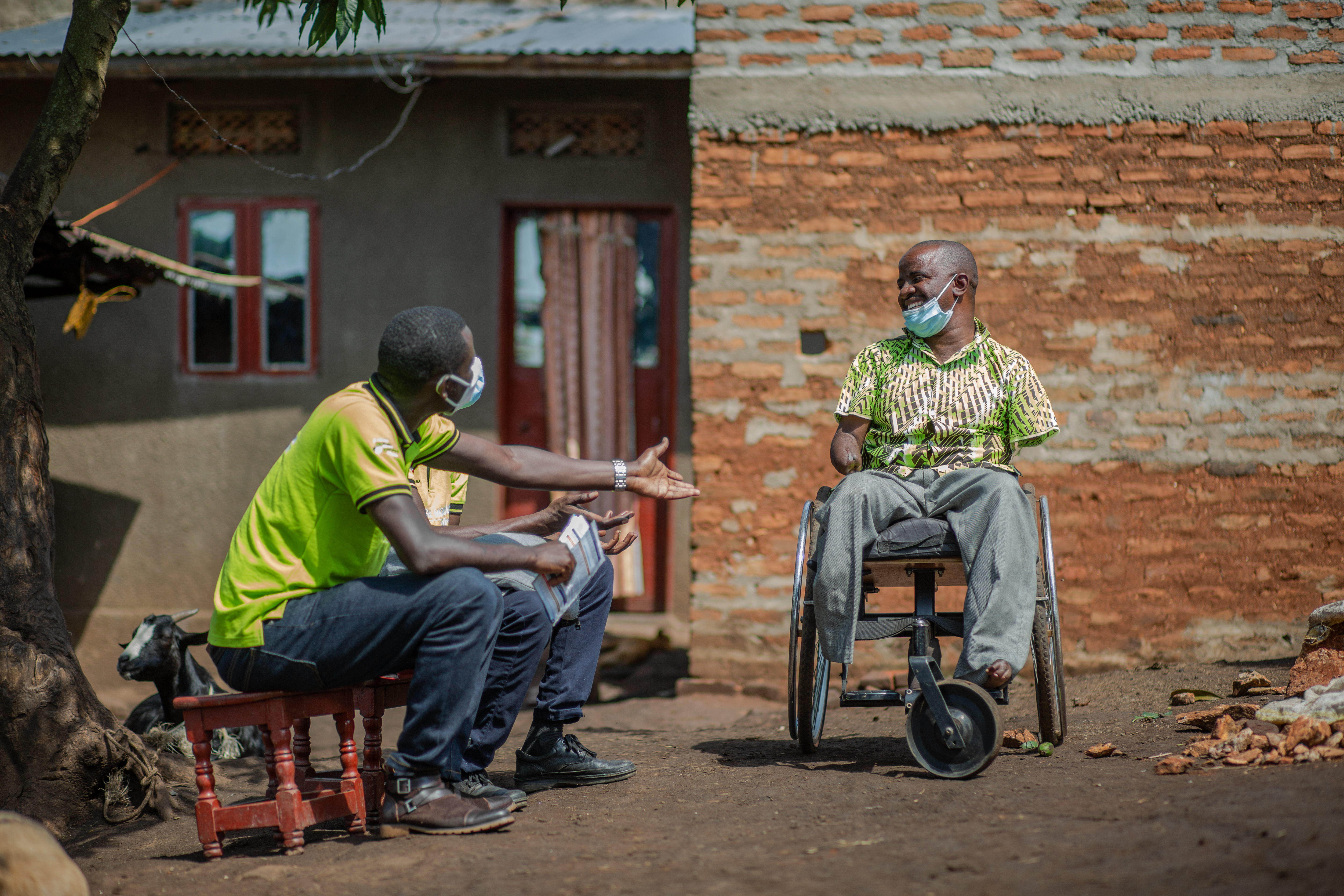
What is unique about working with faith-based organisations?
Caritas, as a religious organisation, has a unique approach, looking at holistic persons. “It looks at the charity of course, but it works to develop a person in all spheres…People believe in their leaders, they believe in their priests, their sheikhs, and in what they do.” Pamela Kabasinguzi explained to us in an interview on the subject. “When a priest goes to church and requests time to talk about sanitation, the people listen.”
Pamela explained to us that even the highest religious leaders such as the Pope speaks about the environment and the dignity of man while referring to the Bible. She mentioned a quotation of the bible they refer to often, where every household is asked to be kept clean so that “When the God comes to bless you, the house should be clean”, mentioning that many religions share this sentiment, that “Even in the Quran, we have similar kinds of scriptures.” Creating demand for basic services like sanitation this way is very effective. She closes, “Research has also shown that religious institutions, at times, push people to work beyond what other mediums would push them to do. We at Caritas are using a similar approach to push people towards using sanitation and constructing toilets.”
Steven Birungi – Programme Manager, Caritas Fort Portal-HEWASA, added that organisations like WASTE can learn that religion is still vital and touches everyone, particularly in the context he works in Africa. It is respected and can significantly influence behaviours, the way of living, and people’s perceptions. Another critical thing is that faith-based organisations are highly credible and reliable. They can thus be trusted. Faith-based organisations like Caritas are highly flexible and able to adjust to different situations. Besides, they provide room for discussion and negotiation in all circumstances until common ground is reached amongst the community.
Meet our partners: Who is Caritas Fort Portal-HEWASA?
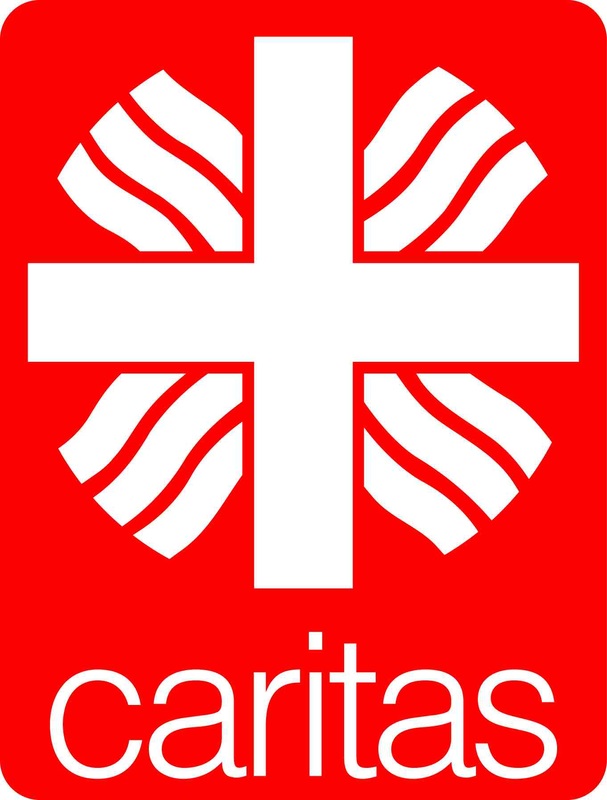
Caritas Fort Portal – HEWASA is the social services arm of the Catholic Diocese of Fort Portal. It was established in 1980 as an emergency and charity organization to support the people affected by the civil unrest. In 1993, the organization expanded to include water, sanitation and hygiene (WASH), justice and peace, agriculture development services (ADP), and financial services. Caritas works on water, sanitation, hygiene and health (WASH), with a focus on agriculture, microfinance and livelihood improvement programmes, including those supporting refugee settlements and host communities, paying particular attention to gender issues within all of these topics. In addition, they have focused on drinking water as well as supporting communities with crop and animal production. They are particularly proud of contributing to much of the pipe water systems in the western region of Uganda, contributing to the construction of over 50% of the water systems in the western areas of Uganda. Caritas has also been the primary regional coordinator for all the NGOs working in the western region on water and sanitation. Besides WASH, they used to work with UNICEF (United Nations Children’s Fund), Water Aid Uganda, German GIZ (Gesellschaft fuer Internationale Zusammenarbeit) and many others.
One unique thing about Caritas Fort Portal – HEWASA is that her works are based on the principles of promoting the life and dignity of the human person and ‘care for God’s creation. From this principle, the organismal values of Godliness, Love, Empathy, Transparency and Accountability, Honesty etc., are derived. And because of this principle, Caritas’ approaches are holistic – aiming to transform people’s physical, inner and psychological beings. Caritas makes an effort to bring non-faith-based organisations into the fold, to make communities and other stakeholders, including the government, believe in and trust what they are doing. As a result, Caritas is trusted more easily, and the communities and other stakeholders accept the solutions they provide. Addition, stakeholders and communities believe faith-based organizations are more accountable and credible than non-faith-based ones.
Another unique aspect about faith Based organizations Like Caritas is the special/ exceptional consideration extended to them, especially on many local and national structures and platforms. For example, a position on boards, steering committees, or coordination of many local and national networks and platforms are reserved for faith-based organizations. A case in point is the Uganda Water and Sanitation Network, where Caritas has been the Regional Coordinator for the Rwenzori Region for the last 20 years and has most recently been elected to its Board.
Our achievements in development together
In Western Uganda, the partnership between WASTE and Caritas Fort Portal – HEWASA and Amref Health Africa under the FM Uganda Programme has installed over 35,000 safely managed sanitation systems. It increases the number of people living healthier by over 210,000; over 1,000 entrepreneurs have been trained technically, and five entrepreneurs coached in sanitation businesses, leading to a generation of approximately 4,480,000 man-hours in employment. As far as leverage is concerned, a total of Euro 10,552,000 has been realized from banks’ MFIs, SACCOs and household savings.
With these achievements and our aligned vision for the future, Caritas Fort Portal – HEWASA has been one of our trusted partners in Uganda for nearly a decade. They have proven that the foundation of trust and good will for the people they serve that is woven into the fabric of their organisation’s DNA, is invaluable in the pursuit of achieving truly sustainable and inclusive development. We hope to build partnerships with more religious institutions, regardless of denomination, to better understand and work with the communities we are working with.
Learn more about how we work with partners in sanitation and innovative financing.
